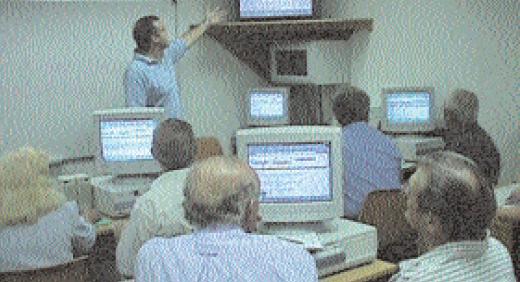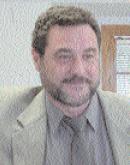El desarrollo de la Tecnología Informática empezó a cambiar poco a poco nuestras vidas. Sin casi darnos cuenta los ordenadores personales han entrado a formar parte de la vida familiar como un electrodoméstico más, el desarrollo de las Telecomunicaciones ha transformado significativamente nuestra sociedad y las Autopistas de la Información han cambiado radicalmente la comunicación humana. El fenómeno Internet podemos considerarlo como una revolución tecnológica, social y cultural.

El recurso energético petróleo se denominó oro negro; al recurso informático 'bit' se le está empezando a denominar oro virtual. Nos encontramos ante una nueva energía que está cambiando la comunicación humana mediante las redes y los ordenadores, que está incidiendo en nuestra vida cotidiana y no podemos ignorarla. Internet, con la potencialidad de sus recursos y las facilidades de uso, está generando, configurando, un nuevo motor de la economía mundial. Podemos afirmar que la nueva Economía del Conocimiento nos atañe a todos: niños, jóvenes, adultos, maduros y mayores. Sí, también a los mayores, tanto a hombres como a mujeres. Estar o no preparados desde una actitud activa y participativa es nuestra responsabilidad, nuestra obligación y nuestro derecho, que debemos ejercer en todos
sus aspectos.
Creo que todos estaremos de acuerdo en que LA INFORMACIÓN es uno de los capitales fundamentales del mundo actual. Se ha afirmado con frecuencia que la información es el poder, y es cierto que se ha convertido en el corazón de todas las actividades humanas, tanto sociales, culturales y financieras como empresariales. Las nuevas tecnologías para acceso y manejo de información nos tienen que servir también a las personas mayores para integrarnos más y mejor, y con pleno derecho, en la sociedad actual. No podemos vivir de espaldas a la microinformática, al ordenador personal ni a Internet. Si queremos seguir el ritmo de la sociedad en la que vivimos y ser ciudadanos de primer nivel, o, lo que es lo mismo, viajar en el vagón de cabecera y no en el furgón de cola, no podemos, no debemos, apartarnos de las nuevas tecnologías. Si aspiramos a ser ciudadanos con pleno derecho y ejercerlo, estamos obligados a sentirnos cómodos manejando un ordenador, tener conocimientos, al menos básicos, de microinformática y utilizar el sistema operativo Windows, o el nuevo que se pueda estandarizar en el futuro, manejar un tratamiento de textos (actualmente parece que el más utilizado es el Word) y también aprender a entrar en la red Internet, navegar por ella, que es lo mismo que buscar información que nos pueda interesar de forma selectiva, intercambiar información en tiempo real con amigos o familia mediante correo electrónico (e-mail), etc., etc. También podemos participar en foros de discusión o conversaciones 'chat'. Ya parece que hemos asumido  en castellano, en lenguaje coloquial, la palabra 'chatear', que es mantener conversaciones en tiempo real mediante el teclado y la pantalla del ordenador. Con el teclado 'hablamos' y con la pantalla 'escuchamos' leyendo. Los más atrevidos pueden utilizar mediante el ordenador personal sistemas de video conferencia para poder estar viendo en la pantalla a la persona con la que estás hablando.
en castellano, en lenguaje coloquial, la palabra 'chatear', que es mantener conversaciones en tiempo real mediante el teclado y la pantalla del ordenador. Con el teclado 'hablamos' y con la pantalla 'escuchamos' leyendo. Los más atrevidos pueden utilizar mediante el ordenador personal sistemas de video conferencia para poder estar viendo en la pantalla a la persona con la que estás hablando.
Y para finalizar, una reflexión que en mi opinión todos nosotros deberíamos hacernos: los mayores no podemos ser los 'analfabetos' del siglo XXI. Las nuevas tecnologías deben permitirnos jugar nuestro rol en la sociedad actual y utilizar plenamente todos los servicios y productos de esta nueva realidad que estamos viviendo. Depende sólo de nosotros mismos.
José Roberto López Martínez
Tesorero de la Agrupación Europea de Jubilados
de Cajas de Ahorros, Bancos y Entidades Afines